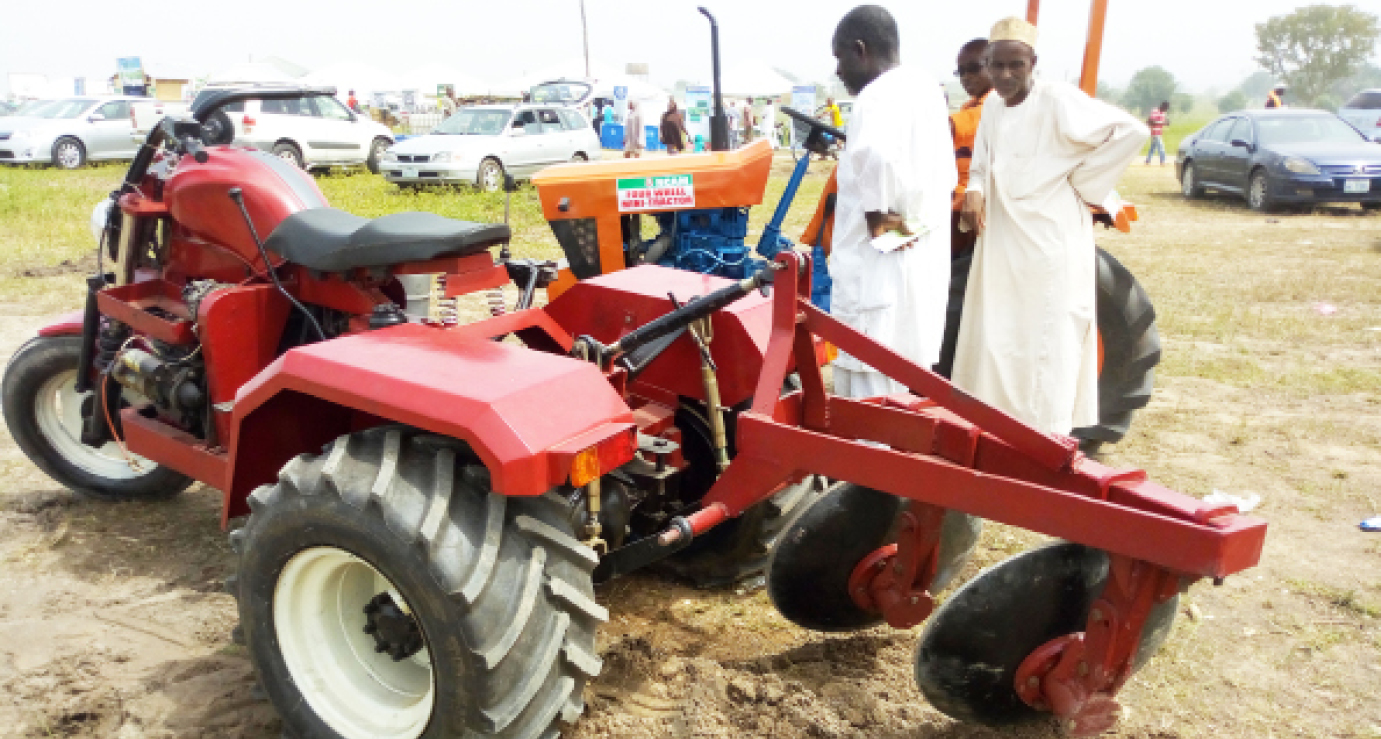Why FG’s policy on mechanisation is not working
For over 60 years, Nigeria has been importing tractors yet less than 30 per cent of farmers in the country have access to mechanisation. Since 2007, the number of tractors has remained less than 29,000 according to the country’s agricultural performance survey 2018. However, experts say Nigeria needs 750,000 tractors to meet the demand of […]

For over 60 years, Nigeria has been importing tractors yet less than 30 per cent of farmers in the country have access to mechanisation.
Since 2007, the number of tractors has remained less than 29,000 according to the country’s agricultural performance survey 2018. However, experts say Nigeria needs 750,000 tractors to meet the demand of farmers.
Currently, Nigeria does not manufacture tractors as the machine is imported whole. Although there are smaller versions fabricated by the National Centre for Agricultural Mechanization, Ilorin, Kwara State, there is no government programme or subsidy for mass-production to reach rural farmers.
Some farmers say mechanisation will continue to elude them if government does not support and promote the manufacturing of smaller and affordable agricultural equipment in the country.
Alhaji Abdullahi Ringim, national president of Tomato Growers and Processors Association of Nigeria, advised the federal government to as a matter of policy, stop the practice of bringing tractors for assembling which has been the case for many years.
“We jumped from hoes to tractors, but China jumped from hoes to hand-made tractors. ‘Why did we jump from hoe to tractor?’ How many people can afford a tractor?” he asked.
According to him, most Nigerian farmers have land ranging from one to five hectares, which makes it unnecessary for them to own a tractor, stressing that the multinationals will encourage countries to buy the technology without any emphasis on tech transfer.
“All these years (of importing tractors), none of these multinationals has transferred the technology to Nigeria. We cannot continue to always import and assemble tractors. Something like harrow and ridgers are something that by now Nigeria is supposed to be exporting. We cannot be a net importer of everything in this country. Now agric equipment is duty free. This discourages people from manufacturing it here,” Alhaji Abdullahi said.
He said government should have a programme whereby after some years, a number of the equipment could be manufactured locally. We have to encourage local manufacturers otherwise we become mentally enslaved, believing that everything good is what is imported and everything produced here is bad.
Citing an example he said: “The northern Nigerian government jumped from hoes to bulls. They supplied bull harrows and ridgers to farmers, and they used the bull to plough their land. Now, why don’t we move on to hand-made tractors, which are easily affordable and can be operated with minimal expertise?”
In the same vein, a study by the International Food Policy Research Institute (IFPRI) says the Nigerian government’s attempt to address the issue of poor tractor accessibility by farmers has not yielded any positive result.
“It is now widely acknowledged that government-run tractor hiring units are rarely effective, and government agencies have shifted into distributing tractors at subsidised prices to certain recipients who they hope will provide hiring services to other farmers. There is evidence that such an approach is broadly ineffective because recipients selected by the government are often less efficient in supplying mechanisation services.
“The federal government acknowledges this and has withdrawn from programmes involving the subsidised distribution of tractors under the recent Agricultural Transformation Agenda. However, government continues to subsidise tractor users (mostly smallholder farmers) instead of the suppliers of mechanisation services. The findings of this study suggest that subsiding users remains ineffective because it does not resolve fundamental supply side constraints.”
The study also notes that the growth of tractor usage in Nigeria in the medium to longer term will depend on a broader set of issues like sustainable good policy, affordability, accessibility among others.
It stated that “Insufficient investment into agricultural Research and Development or infrastructure, such as irrigation facilities, can suppress domestic agricultural production even in the face of growing food imports and rising food prices.”
